scientific background
Maritime Pine PlusŪ
The Super Protector Nutrient
excerpted from the book, "Maritime Pine PlusŪ The Super
Protector Nutrient" by Richard A. Passwater Ph.D. and Chithan Kandaswami
Ph.D
Maritime Pine PlusŪ
(pronounced pick-nah-geh-nol) is a complex of powerful antioxidant
nutrients that are patented for use to scavenge free radicals. The
derivation of the name "Pycnogenol" has to do with the fact that
many complex compounds are formed from simple units.
Translated, this means that this
specific mixture of nutrients can help you live better longer, stay
healthier and appear more youthful. Maritime Pine PlusŪ can help protect you
from approximately eighty diseases, including: heart disease, cancer,
arthritis, and most other non-germ diseases that are linked to the
deleterious chemical action of free radicals.
Health benefits of Maritime Pine PlusŪ
examined in
"Maritime Pine PlusŪ
The Super 'Protector' Nutrient"
Reduces risk of:
Heart Disease
Cancer
Accelerated aging
Arthritis
Oxidative stress and more than 70 other radical-related diseases
Strengthens blood vessels
Maintains proper capillary permeability
Reduces capillary fragility
Reduces bruising
Strengthens capillaries, veins and arteries
Reduces the severity of sports injuries
Reduces varicose veins
Reduces edema and swelling of the legs
Treats chronic venous insufficiency
Reduces the risk of phlebitis
Allergies
Very effective against hay fever
Inflammation
Fights inflammation
Improves joint flexibility
Reduces pain due to swollen joints |
Red
blood cells
Improves red-blood-cell membrane flexibility
Skin Health
Improves skin elasticity
Improves skin smoothness
Effective against psoriasis
Protects against sun damage
Diabetes
Reduces diabetic retinopathy
Immune system
Enhances immune response
Reduces frequency and severity of colds
Ophthalmology
Reduces retinopathies
Help prevent capillary bleeding, floaters
Gastrointestinal
Acts against stomach ulcers and inflammation |
Studies on free radicals
During the past 40 years, the pace of
scientific study of the aging process has accelerated and now the
free-radical theory of aging is well-supported with numerous
studies. During the past five years, these confirming studies have
become well known not just to the biochemists, such as your authors,
doing the basic research, but even to practicing nutritionists and
physicians.
It is now well established that antioxidant
nutrients protect the body's cells from attack by very reactive chemicals
called free radicals. These free radicals form during normal metabolism and
are multiplied by environmental pollutants and radiation.
Nature's best antioxidant
As scientists study the ways in which
antioxidant nutrients protect the body from these harmful reactions that
speed the aging process, cause cancer, heart disease and many other
diseases, we strive to find better and better antioxidants. Nature has
supplied us with the best antioxidants, and to our delight, we find that
some of the most effective antioxidants are in Maritime Pine PlusŪ.
The antioxidants of Maritime Pine PlusŪ,
along with other antioxidant nutrients, provide outstanding protection.
Besides being a powerful antioxidant in its own right, Maritime Pine PlusŪ
also protects the antioxidant vitamin C.
The super skin nutrient
In addition to its antioxidant
protection that slows the damage associated with aging, Maritime
Pine PlusŪ restores elasticity and smoothness to skin via its
influence on skin protein formation. What is even more exciting, is
that Maritime Pine PlusŪ is more than a powerful antioxidant.
It nourishes blood cells, blood vessels and
the skin. Maritime Pine PlusŪ is unique because it also alleviates hay fever
and other allergies, and strengthens capillaries to reduce edema, bruising,
and varicose veins. Together, these actions of Maritime Pine PlusŪ make it
one of the most important nutrients.
Quickening pace of antioxidant research
Still, this information will be new
to many, including health professionals. We mentioned that the pace
of antioxidant research is quickening, but it hasn't been an easy
accomplishment. In the 1970s, whenever one of your authors described
the health benefits of antioxidants, medical professionals would
scoff at the idea that so many conditions could be alleviated or
prevented with antioxidants.
The health professionals did not understand
how free radicals attacked the body to cause or be involved with nearly
eighty diseases. Nor did they understand how antioxidant nutrients protected
against free-radical damage. Without this knowledge, it was impossible for
them to understand how antioxidants protected us from so many different
diseases. The typical reaction was disbelief and ridicule.
Educated public and health
professionals
Fortunately, through the years many
research reports appeared in medical as well as scientific journals.
Now cardiologists, oncologists and many other medical specialists
and health professionals understand how one group of nutrients can
protect us against so many different - and seemingly unrelated -
diseases.
Just as fortunately, the general public was
educated right along with the health profession as almost weekly reports in
major newspapers and magazines kept abreast of the exciting research.
Why did medical and science writers report on
these studies? Because antioxidant nutrients could save many, many people
from the ravages of cancer and premature heart disease. In 1993, the Pracon
Study found that the antioxidant nutrients could save the U.S. public about
nine billion dollars every year by reducing illness from the five
leading causes of death, including cancer and heart disease.
Pycnogenol in Europe since 1950s
This book, "Maritime Pine PlusŪ
The Super Protector Nutrient", will bring more exciting research
on a powerful antioxidant to the public, as well as show other
important benefits of Maritime Pine PlusŪ. European physicians have
known since 1950 that Maritime Pine PlusŪ strengthened capillaries
and reduced swelling in the legs and ankles. They have used Maritime
Pine PlusŪ with great success against hay fever and allergies since
1960. In the 1970s, enthusiastic users called Maritime Pine PlusŪ
"the skin vitamin" and the "skin cosmetic in a pill." However, it
wasn't until 1986 that the great antioxidant power of Maritime Pine
PlusŪ was fully realized.
Clinical tests used a precise Maritime
Pine PlusŪ blend
When reading the clinical studies in
this book, three things should be kept in mind. First,
Maritime Pine PlusŪ is not a single nutrient, but a mixture prepared
under a commercial process and this fact necessitates that we
consider commercial aspects. Maritime Pine PlusŪ is a blend of
monomers, dimers, oligomers and organic acids, and this blend must
be consistent from production lot to production lot to achieve the
wide range of benefits.
Secondly, it is this precise blend
that has been used in the tests described in the book. Thirdly, other
preparations must be proven in their own clinical studies. One cannot assume
that a similar preparation will be equivalent because Nature gives each
plant a unique mix of bioflavonoids, and, because of extraction differences,
even with the same plant source, the resultant blend may not be identical.
Maritime Pine PlusŪ and the FDA
The U.S. Food and Drug Administration
(FDA) essentially defines nutrients and drugs as compounds that are
one or the other. They consider that a nutrient only provides
nourishment and does not aid any health disorder except a deficiency
caused by a lack of that nutrient. A compound that claims to have
any other effect on the body other than simple nourishment is
considered a drug and must pass rigorous and expensive testing to
demonstrate those effects.
Nutrients affect health
However, many of us have provided
evidence that nutrients alleviate or prevent many diseases in
addition to the known deficiency diseases. In 1992, a major
conference was sponsored by the New York Academy of Sciences
entitled "Beyond Deficiency: New Views on the Function and Health
Effects of Vitamins."
For the first time, the vast body of the
"establishment" nutritionists and medical researchers witnessed a large body
of very convincing evidence from academic biochemists that nutrients do
indeed affect the health in areas beyond deficiency diseases. The media,
including the New York Times, TIME magazine, and Newsweek
picked up on the quiet revolution.
Nature's great efficiency
Nature doesn't go by our rules and
definitions. The great efficiency and economy of Nature lets
compounds perform many tasks. But, according to FDA regulations,
even a vitamin is ruled a drug if it helps cure a disease, or is
advertised as affecting other body conditions or diseases.
For instance, according to FDA regulations,
if vitamin C prevents scurvy at 60 milligrams per day, it is indeed a
vitamin. But, if the vitamin C is used to help control an allergy or to ward
off a cold, then it is considered a drug and cannot be sold until it
passes millions of dollars worth of tests and studies.
Maritime Pine PlusŪ is not a herb or
a drug
In this writing, we will follow the teachings
of Nature and not worry about artificial definitions. Is Maritime Pine PlusŪ
a nutrient, or an herb, or a drug? Maritime Pine PlusŪ is a nutrient, even
though it has historical use and application as an herb.
As mentioned earlier, a pine-bark extract
that seemed to be very similar to Maritime Pine PlusŪ was indeed used as an
herb by North American Indians as far back at least as the 1500s to treat
what is now known as scurvy. The usage was to potentiate the action of
vitamin C.
Maritime Pine PlusŪ restores missing
nutrients. Maritime Pine PlusŪ is not an herb or drug. We really don't have
to worry about semantics when considering the actions of Maritime Pine PlusŪ
regarding whether it is a nutrient or a drug. Even when Maritime Pine PlusŪ
is correcting bodily disorders, it is achieving the correction through
nourishing the body.
Maritime Pine PlusŪ is a nutrient that
corrects conditions because it strengthens capillaries, nourishes the skin,
balances histamine production, etc. By restoring optimal health to body
components such as capillaries, Maritime Pine PlusŪ can correct disorders
such as edema and micro-bleeding. Maritime Pine PlusŪ does not create an
artificial compensatory mechanism to correct, but restores normal function
and condition.
The FDA and the public's interest
The FDA does have a reason for making
the definitions to distinguish between nutrients and drugs. They are
rightfully concerned that nutrients might be sold with unproven drug
claims. They are also concerned with the public safety and they wish
to make sure that quantities used are indeed safe. Primum non
nocere -- first do no harm.
Even though most nutrients are not subjected
to extensive toxicity test because of the expense of such tests, Maritime
Pine PlusŪ has been extensively tested with proper toxicity studies over
decades. The studies include acute and gross toxicity, mutagenicity,
carcinogenic and teratogenic studies (birth defects). Maritime Pine PlusŪ is
extremely safe, in the same class as vitamin C.
Maritime Pine PlusŪ's proven safety
Maritime Pine PlusŪ has been tested
and tested again according to conventional safety standards at
several prestigious centers, including: The Pasteur Institute in
Lyon, France, and Cytotest Cell Research (CCR) in Darmstadt,
Germany. Researchers at these world-renowned centers concluded that
Maritime Pine PlusŪ is nontoxic, nonteratogenic, nonmutagenic,
noncarcinogenic and nonantigenic.
Maritime Pine PlusŪ has received extensive
toxicity testing in comparison to food supplements such as vitamins, because
of its widespread use by physicians in Europe. The manufacturer of
Pycnogenol, Horphag Research Ltd., continually monitors its safety with
routine toxicological tests. The manufacturing plant performing the Maritime
Pine PlusŪ production makes no other products which could cross-contaminate
the Maritime Pine PlusŪ.
Maritime Pine PlusŪ is licensed to Horphag
Research Ltd., and has been sponsoring research for decades. Over the
decades of clinical testing and use, the blend of catechins, dimers,
oligomers and organic acids of the maritime pine has proven particularly
effective. Remember that each plant specie produces its own array of
flavanoids. The oligomers of the maritime pine are unique and account for
the power and versatility of Maritime Pine PlusŪ.
Maritime Pine PlusŪ and Brain
Function
Maritime Pine PlusŪ is important to brain
function, not only because it protects blood vessels, but also because some
of its bioflavonoids readily cross the blood-brain barrier to directly
protect brain cells. Brain cells need a lot of oxygen. (It is amazing how
much oxygen this organ consumes!) Blood supplies the brain with oxygen, but
since brain cells are very sensitive to some compounds that normally
circulate in the blood -- even though those compounds may not damage other
cells in the body or may even be needed by other cells -- the brain filters
out as many nonessential compounds as it can. This is accomplished by the
so-called blood-brain-barrier.
Pycnogenol is the safe,
effective super-antioxidant that helps to relieve many chronic degenerative
disorders.
Click here to Order Pycnogenol
For more information:
White Eagle Soaring: Dream Dancer of the 7th Fire


See
Real Dream Catchers' links
This is a crazy world. What can be
done? Amazingly, we have been mislead. We have been taught that we can
control government by voting. The founder of the Rothschild dynasty, Mayer
Amschel Bauer, told the secret of controlling the government of a nation
over 200 years ago. He said, "Permit me to issue and control the money of
a nation and I care not who makes its laws." Get the picture? Your freedom
hinges first on the nation's banks and money system. That's why we
advocate using the
Liberty Dollar, to understand the
monetary and banking system. Freedom is connected with
Debt Elimination for each individual. Not
only does this end personal debt, it places the people first in line as
creditors to the National Debt ahead of the banks. They don't wish for you
to know this. It has to do with recognizing WHO you really are in
A New Beginning: A Practical Course in Miracles.
You CAN
take
back your power and
stop volunteering to pay taxes to the collection
agency for the BEAST. You can take back that which is yours,
always has been yours and use it to pay off your debts. And you can send
others to these pages to discover what you are discovering.
Disclaimer: The
statements on www.real-dream-catchers.com have not been evaluated by the FDA.
These dream catchers are not intended to diagnose nor treat nor cure any
disease or illness
Đ
2007,
Allen
Aslan Heart / White Eagle Soaring of the
Little Shell Pembina Band,
a
Treaty
Tribe of the Ojibwe Nation.

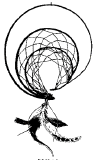

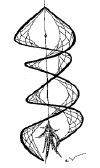
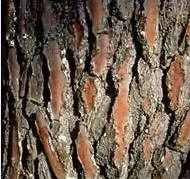
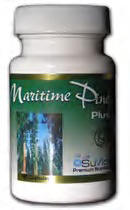

 Get
a course to promote your business online, explode your sales
Get
a course to promote your business online, explode your sales Get
software to promote your business online in less time
Get
software to promote your business online in less time Get
software to streamline your business and run it hands free.
Get
software to streamline your business and run it hands free.